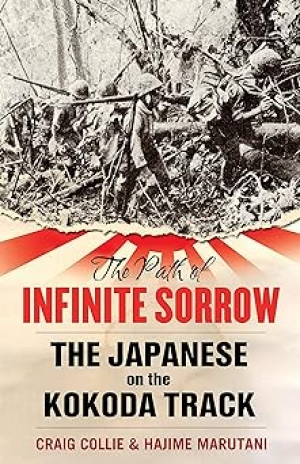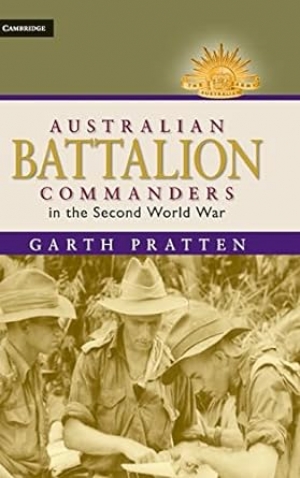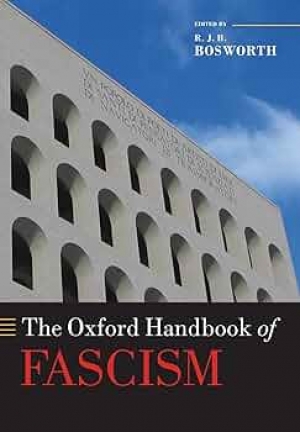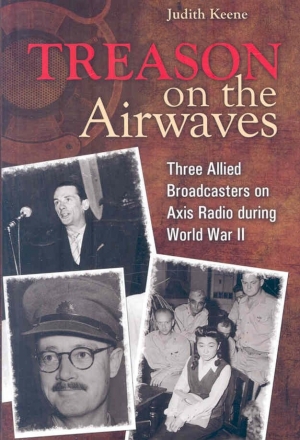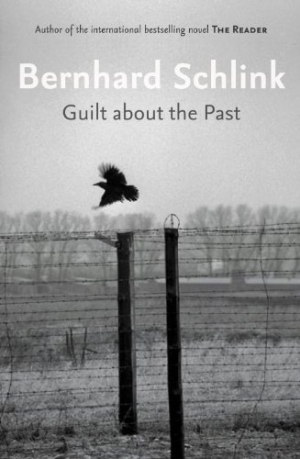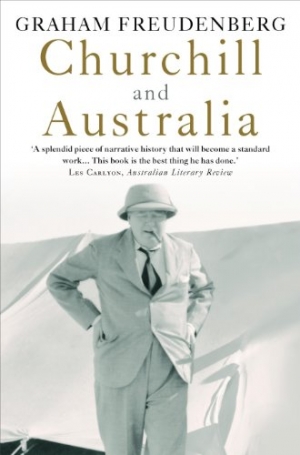World War II
Robin Prior reviews 'Churchill’s Empire: The World That Made Him and the World He Made' by Richard Toye
Empires are out of fashion. The idea of one people ruling over another has had its day. The mention of any empire – with the possible exception of the Roman one, for which people still have a certain fondness – will almost invariably meet with deprecating comments, even derision ...
... (read more)‘A peculiar bloke, Jack; you never knew him. You couldn’t get close to him.’ Reg Pollard, who was one of the abler members of the Labor Caucus in the 1940s, confessed his puzzlement to Lloyd Ross as Curtin’s biographer gathered personal testimony ...
... (read more)Peter Stanley reviews 'Diggers and Greeks: The Australian campaigns in Greece and Crete' by Maria Hill
Late in 1944 Richard Turner was at last able to come home. A Sydney taxi driver, he had been captured in Greece in June 1941. Like 2,000 other Australians, he missed the last boats to leave. Though captured by the Germans, he soon escaped to join the andartes – partisans fighting the Germans in Greece’s rugged interior. With the Germans pulling out, British officers managed to contact Richard and he was finally able to leave for home after nearly five years. On 17 December 1944 the lorry taking Richard to Athens airport accidentally drove into one of the first firefights of the Greek civil war. Richard now lies in the beautiful war cemetery at Phalereon, an oasis of peace amid the traffic that chokes Athens.
... (read more)Soon after the end of World War II, Robert Booker, husband of Catherine, returns from service in New Guinea to their home in Sydney. It is immediately apparent that their relationship has deteriorated. With Catherine’s hasty disposal of a telegram from an American soldier named Lewis, we learn that she has had an affair, and also a child, in Robert’s absence. The story then moves back to 1944, when the liaison began. Eventually it returns to the present, and Catherine has a hard time concealing her affair and child from her husband.
... (read more)Steven Bullard reviews 'The Path Of Infinite Sorrow: The Japanese On The Kokoda Track' by Craig Collie and Hajime Marutani
Not surprisingly, publishers often claim that their latest offering takes the reader down a path never before trodden, to reveal new insights and understandings of well-worn topics and events. The Path of Infinite Sorrow is no exception, with the promise of a ‘whole new perspective’ on the Japanese side of the story of the Kokoda campaign in Papua during the early stages of World War II. In recent years, the status of Kokoda has challenged that of Gallipoli in the national consciousness, with a number of lengthy tomes, guidebooks, journal articles and newspaper articles, not to mention a feature movie, devoted to the campaign. But why another book, and does it offer anything new?
... (read more)John Connor reviews 'Australian Battalion Commanders in the Second World War' by Garth Pratten
Do not be put off by this book’s bland title. In a country that has placed the Anzac Legend at the centre of its national identity, Australian Battalion Commanders in the Second World War is a profoundly subversive book. Cherished ideas of the Australian army as an egalitarian institution and of Australians as natural soldiers whose setbacks can always be blamed on the failings of others (generally the British or the Americans) are put to the test and found wanting. Those looking to have their strident assertions of Australian nationalism validated will be disappointed, but there are already plenty of other Australian military books that can satisfy them. Garth Pratten provides a portrait of Australians at war that is less heroic and more ambiguous, but ultimately more realistic because more human.
... (read more)Judith Keene reviews ‘The Oxford Handbook of Fascism’ edited by R.J.B. Bosworth
In a delightful memoir of a boyhood spent in Mussolini’s Italy, Umberto Eco recalled that the heady days of the Liberation in his small town near Milan were encapsulated in the taste of Wrigley’s Spearmint, given by an African-American GI (New York Review of Books, 22 June 1995). After the years of ‘palefaces in blackshirts’, these Americans appeared like exotic time travellers from the future. At the same time, the boy discovered that, unlike the long-winded Duce, large slabs of whose bombast schoolchildren were expected to commit to heart, the leader of the local partisans addressed the cheering crowd in the piazza with a few well-chosen and rhetoric-free words. Equally astonishing was the discovery that newspapers could carry opinions other than those mandated by the state.
... (read more)‘It is high time for me to put an end to your sitting in this place,’ declared Oliver Cromwell to the Rump Parliament in April 1653. ‘Ye are a factious crew, and enemies to all good government … In the name of God, go!’
Leo Amery, a Conservative backbencher, brought Cromwell’s final six words into the House of Commons on 7 May 1940. He was unsure whether he would use them in the debate over Norway, where British and French forces were withdrawing from the first major land confrontation of the war. Colonial Secretary in the Conservative governments of the 1920s, Amery was a passionate advocate for the British Empire and strongly anti-communist. In the 1930s he became a tough critic of his own party’s appeasement of Nazi Germany. Speaking late in the debate, Amery felt the House was with him, and he ended his speech as Cromwell had done. Neville Chamberlain survived the division, but not the collapse in support from a fifth of his backbench, galvanised by Amery and others.
... (read more)Damian Grace reviews ‘Guilt About the Past’ by Bernhard Schlink
This is a book about a very specific past, that of the Third Reich, and the way in which it produced guilt in the next generation, but its lessons can be generalised. Bernhard Schlink shows how that guilt has withstood the institutional strategies of history, law and politics to erase it. Schlink, born in 1944, belongs to the generation burdened with the moral repercussions of the war and the Holocaust. Many of the parents, teachers, judicial officers, bureaucrats and professors who rebuilt Germany were implicated in Nazism, and many young Germans – Schlink among them – found themselves guilty by entanglement. This theme runs centrally through Schlink’s fiction – notably The Reader (1997) and Homecoming (2008) – and now through these six essays, given originally as lectures at St Anne’s College, Oxford.
... (read more)Geoffrey Blainey reviews 'Churchill and Australia' by Graham Freudenberg
It was a bright and bold idea of Graham Freudenberg to write a book on Winston Churchill and his long links with Australian political and military life. Though Churchill didn’t visit Australia – ‘wise man’, some said – he was a strong or even decisive influence at several turning points in our history and indeed our mythology.
Churchill exerted influence here long before 1940, when he became Britain’s prime minister. He sparred with Alfred Deakin in London in 1907; he was the political mastermind behind the Gallipoli landing in World War I; and in 1921 he helped to throttle the renewal of the nineteen-year-old Anglo-Japanese naval alliance. In the 1920s he delayed, for valid financial and strategic reasons, the creation at Singapore of a naval base intended to be Australia’s front-line defence against Japan in the next world war. He was a lonely giant in defying Hitler in that terrible year of 1940; and in the following years he clashed with Australia’s prime minister, John Curtin, on vital strategic questions.
... (read more)


